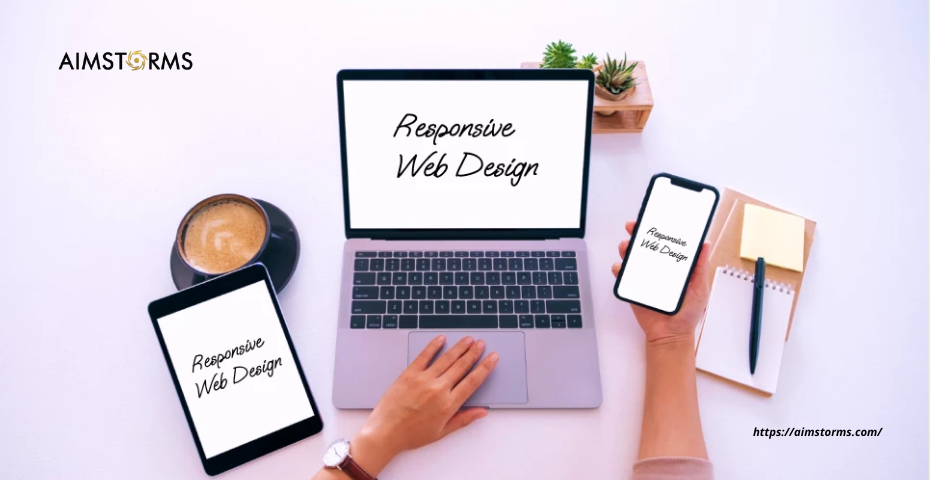In today’s fast-paced online world, having a website is no longer enough. The question is: Does your website perform seamlessly across all devices? If not, you could be losing valuable traffic and, ultimately, business. This is where the importance of responsive web design in SEO comes into play. Responsive web design is no longer a luxury—it’s a necessity.
Why Responsive Web Design Matters
A responsive website adjusts itself perfectly to fit any screen size, whether it’s a smartphone, tablet, laptop, or desktop. But why does this matter so much? Let’s break it down:
- Mobile Traffic Domination
Over 60% of web traffic now comes from mobile devices. If your website isn’t mobile-friendly, you’re turning away potential customers. A mobile-friendly website design ensures that visitors have a smooth experience regardless of the device they’re using. - Search Engine Prioritization
Google has made it clear: mobile-first indexing is the standard. This means search engines primarily use the mobile version of your site for indexing and ranking. Without a responsive design, your website’s rankings may plummet, making it difficult for potential customers to find you. - Improved User Experience
Responsive design isn’t just about aesthetics; it’s about functionality. A site that loads quickly and looks great on all devices ensures better user engagement and lower bounce rates. This directly impacts your SEO, as search engines favor websites that keep visitors engaged. - Cost Efficiency
Maintaining separate desktop and mobile websites is expensive and inefficient. A responsive design eliminates this need, providing one unified experience for all users while optimizing your investment in Website Designing Services.
SEO and Responsive Design: The Perfect Pairing
Search engine optimization (SEO) is all about visibility. If your website doesn’t rank well, it doesn’t matter how great your services or products are—people won’t find you. Here’s how responsive design boosts your SEO efforts:
- Faster Loading Times: Google rewards sites that load quickly, and responsive designs are inherently faster. A slow-loading site can lose users and search rankings in seconds.
- Lower Bounce Rates: When users leave your site quickly because it doesn’t work well on their device, search engines take it as a signal that your content isn’t relevant. Responsive design ensures users stay longer.
- Better Social Sharing: A responsive website is easier to share on social media platforms, which drives more traffic and indirectly improves your SEO rankings.
Key Features of a Mobile-Friendly Website Design
A mobile-friendly website design isn’t just a shrunken-down version of your desktop site. It’s a deliberate approach to design that focuses on:
- Responsive Layouts: Flexible grids and layouts that adapt to various screen sizes.
- Touch-Friendly Navigation: Buttons and menus optimized for touchscreens.
- Readable Text: Fonts that are legible without zooming.
- Optimized Images: Scalable images that don’t compromise on quality or speed.
- Seamless Accessibility: Ensuring content is easy to access for all users, including those with disabilities.
How Responsive Design Impacts Your Brand
Think about your website as your digital storefront. If it’s cluttered, hard to navigate, or doesn’t function well on mobile, it reflects poorly on your brand. Responsive design builds trust, enhances credibility, and creates a seamless experience for your audience.
Brands like Cock Colours, Morzze have understood this need and incorporated responsive design principles to ensure their websites stand out in the competitive digital space.
Partner with Experts for Website Designing Services
Creating a responsive website isn’t just about technical expertise—it’s about understanding user behavior and anticipating their needs. That’s where professional website designing services come in. They bring the skills and insights needed to craft a site that’s not just visually stunning but also optimized for performance and SEO.
When you work with experts, you get:
- Tailored Designs: Custom solutions that reflect your brand’s identity.
- SEO Integration: Design strategies that align with your SEO goals.
- Future-Proofing: Scalable designs that adapt to evolving technology.
Conclusion
Responsive web design is no longer optional. It’s a critical component of your online strategy that impacts your visibility, user engagement, and overall brand perception. In a world where users demand fast, seamless experiences, investing in responsive design is one of the smartest decisions you can make.
At AimStorms, we specialize in creating responsive, mobile-friendly websites that look great and perform exceptionally well. Let’s work together to elevate your online presence and ensure your brand stays ahead in the digital game.
Don’t just adapt to the digital future—lead it with responsive design.

